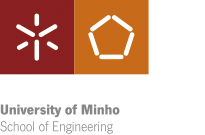Description
This cycle of studies aims to prepare engineering graduates with abilities in currently recognized phases of software development, such as software analysis, design, implementation and installation. Students should gain extensive theoretical and practical experience in problem analysis, design of IT solutions and architectures, prototype building techniques, testing, refinement and installation, application maintenance, and the networks to support them.
Graduates of this degree should be able to apply computer science, science and engineering knowledge in solving specific Informatics Engineering problems. As future engineers they should always be concerned with rigor, both in the analysis and implementation of projects, assessing their quality, costs and economic impact.
Key learning outcomes
It is expected that students after three years of training in the Bachelor in Informatics Engineering have the following generic skills to:
1. Have competences in solving small problens using computers, teamwork and communication.
2. Demonstrate theoretical and practical knowledge in Science and knowledge of the fundamental principles of Programming, Computing and Information Technologies
3. Be prepared for professional practice after obtaining the degree.
4. Be able to make independent learning and continuous professional development.
5. Have awareness and understanding of professional ethics.
Access to higher education
The Degree in Informatics Engineering gives the technical-scientific ability to access second cycle courses, namely the Master in Informatics Engineering.
Careers
Computer Engineering is transversal to all areas of activity so a degree in Informatics Engineering can carry out his activity in any area of activity. Naturally, the Information Technology (IT) industry, particularly those focused on software design and development, will be the main employers of professionals trained in this degree.

